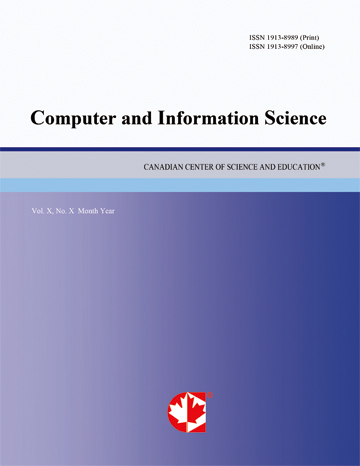The Characteristic and Success Factors of an Organizational Memory Information System
- Saidatul Rahah Hamidi
- Kamaruzaman Jusoff
Abstract
<!-- /* Font Definitions */ @font-face {font-family:??; panose-1:2 1 6 0 3 1 1 1 1 1; mso-font-alt:SimSun; mso-font-charset:134; mso-generic-font-family:auto; mso-font-pitch:variable; mso-font-signature:3 135135232 16 0 262145 0;} @font-face {font-family:"\@??"; panose-1:2 1 6 0 3 1 1 1 1 1; mso-font-charset:134; mso-generic-font-family:auto; mso-font-pitch:variable; mso-font-signature:3 135135232 16 0 262145 0;} /* Style Definitions */ p.MsoNormal, li.MsoNormal, div.MsoNormal {mso-style-parent:""; margin:0cm; margin-bottom:.0001pt; text-align:justify; text-justify:inter-ideograph; mso-pagination:none; font-size:10.5pt; mso-bidi-font-size:12.0pt; font-family:"Times New Roman"; mso-fareast-font-family:??; mso-font-kerning:1.0pt;} /* Page Definitions */ @page {mso-page-border-surround-header:no; mso-page-border-surround-footer:no;} @page Section1 {size:612.0pt 792.0pt; margin:72.0pt 90.0pt 72.0pt 90.0pt; mso-header-margin:36.0pt; mso-footer-margin:36.0pt; mso-paper-source:0;} div.Section1 {page:Section1;} -->Data, information and knowledge have increased within organization across time. They become wasted memories due to retired staff, died or replace to another department. This could give great impact when intellectual capital do not being used wisely especially as competitive advantage element. Therefore, there is a need to manage memories accordingly. Otherwise, time, money and energy are wasted when the same task, research and findings need to be done repeatedly. This paper discusses the implementation of organizational memory system (OMS) which also known as organizational memory information system (OMIS). Before that, the basic theory of organizational memory (OM) will be described for better understanding. This paper indicates that there are 5 blocks of success factor to evaluate OMIS implementation; system quality, information quality, success measure in terms of usage, individual impact and organizational impact. OMS is proposed as a prototype to be implemented for the whole module of Faculty of Computer Science and Information System in order to protect their intellectual capital and optimizing the efficiency by managing organizational memory. The paper provides details of solution to academic management on the approach to making organizational memory information system work in practice. The approaches to manage memories in the model have yielded a number of benefits as demonstrated by a case study. This work will be beneficial to researchers and practitioner who are interested in applying OMIS in organization.
- Full Text:
 PDF
PDF
- DOI:10.5539/cis.v2n1p142
Journal Metrics
WJCI (2022): 0.636
Impact Factor 2022 (by WJCI): 0.419
h-index (January 2024): 43
i10-index (January 2024): 193
h5-index (January 2024): N/A
h5-median(January 2024): N/A
( The data was calculated based on Google Scholar Citations. Click Here to Learn More. )
Index
- BASE (Bielefeld Academic Search Engine)
- CNKI Scholar
- CrossRef
- DBLP (2008-2019)
- EuroPub Database
- Excellence in Research for Australia (ERA)
- Genamics JournalSeek
- GETIT@YALE (Yale University Library)
- Google Scholar
- Harvard Library
- Infotrieve
- Mendeley
- Open policy finder
- ResearchGate
- Scilit
- The Keepers Registry
- UCR Library
- WJCI Report
- WorldCat
Contact
- Chris LeeEditorial Assistant
- cis@ccsenet.org
